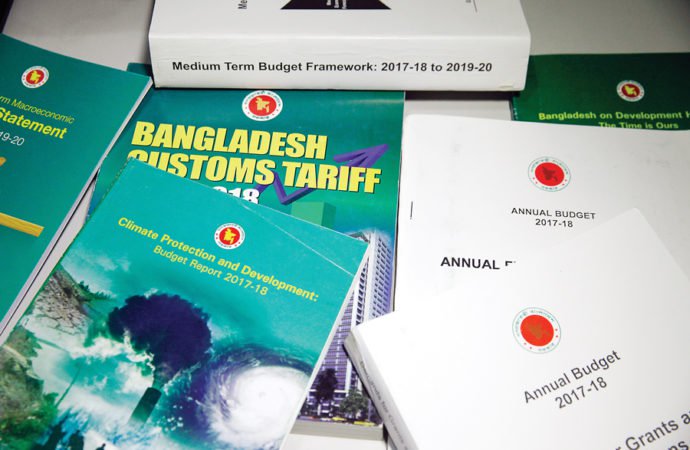Challenges to implementing ADP in an election year

The budgets that have the allocation for development programs that are still not being implemented
It will be a tall order to implement 73% of the ADP in the remaining six months of the current fiscal
The lack of implementation of the government’s Annual Development Programme (ADP) has become a norm in Bangladesh. The current 2017-18 fiscal year is not an exception.
An analysis of publicly available information revealed that the ADP is never fully implemented. Although some of the development projects move ahead slowly, many do not even start.
The Planning Ministry has long been publishing annual reports identifying various problems in executing the ADP. All the ministries and departments of the government are urged in the reports to realize the ADP.
A similar call has been made this year too. This year is important for the government since the next parliamentary election is expected to be held by December.
Economists say the ruling party candidates will face severe criticism if the development projects in the electoral areas are not implemented before the polls.
Planning Ministry sources say the rate of ADP execution in the first six months of the current fiscal is a mere 27%. Carrying out the rest 73% in the remaining six months will be a herculean task.
Although the ADP implementation rate is higher in the second half of the fiscal year, it is highly unlikely that the remaining 73% can be executed during this period. But the execution rate will be satisfactory, policymakers say.
The Implementation Monitoring and Evaluation Division (IMED) has identified various reasons for the slow pace of fulfilling the ADP and made a number of recommendations. The reasons include not disbursing funds in time; delay in land acquisition; and the lack of skilled project directors.
Apart from these, other reasons include lack of practical experience; government’s slow pace of adopting work plan; complications in purchase works; and not getting qualified panels of advisers.
Some other reasons mentioned are delay in getting permission from concerned development partners; complications in evaluating environmental impact; non-negotiation of loans; not following practical purchase plan, lack of formulation and implementation of work plan at the right time; delay in floating tenders and awarding contracts; rise in project cost due to changes in physical work design and rate change.
Apart from them, not following regulations in appointing project directors and transfer; lack of monitoring by concerned ministry, department and organization; not giving importance to IMED monitoring report recommendations on project implementation and post-implementation period; and not getting the project PCR in time have also been identified as some of the other issues.
Although various ministries and divisions are urged from the beginning of the fiscal year to execute the ADP, the scene is different this year.
The concerned government division has advised solving documentation issues and do purchase works instead of starting ADP implementation from the first day of the fiscal. It rains in July and August – the first two months of the fiscal. Similar situation exists in the last two months – May and June – of the fiscal too.
During this time, the concerned division advises to focus on the projects’ in-house works. It is not impossible to meet the ADP execution goal if timely projects are taken with elaborate plans.
Former Bangladesh Bank governor Salehuddin Ahmed said it would be incorrect to consider ADP implementation in terms of money only.
He said: “We also need to see if the ADP projects executed by the ministries and divisions have been done correctly. On the other hand, we have to find out the real reasons for others failing to implement.
“We have to work to carry out the ADP considering the weather. Works will face obstacles during rain which only results in the waste of time and money.”
The Finance Ministry issues directives for ADP implementation every June. The concerned ministry directs others to execute 95% of the ADP. Apart from this, the ministry directives mention setting up a fund to identify and solve problems related to ADP implementation. Money can be taken out of the fund for priority works or project implementation.
Planning Ministry sources say the prime minister has ordered project directors to remain in the project areas. But project directors do not follow the order if they are appointed on political considerations. There are cases where the project directors do not have any knowledge regarding the concerned matters.
These issues will make execution of the 73% ADP in the remaining six months a big challenge.
Planning Minister AHM Mustafa Kamal hoped the ADP would be implemented as per the expectation in the remaining months.
“The ADP implementation rate is better now compared to the past because of strict monitoring,” he said. “The ADP execution rate will go up if the government’s big projects are implemented.”
